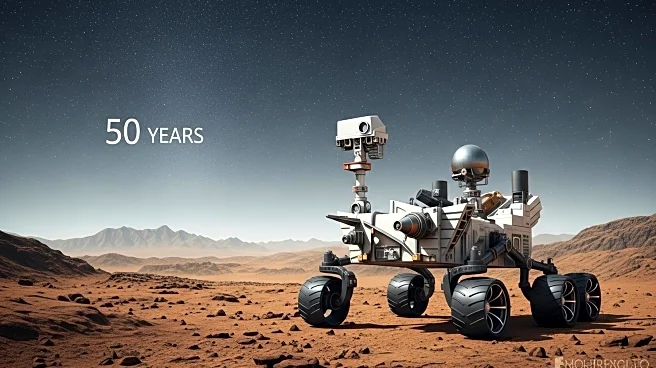What's Happening?
In 1976, NASA launched the Viking missions, consisting of two spacecraft designed to search for life on Mars. These missions marked the first successful soft landings of operational spacecraft on another planet. The Viking landers conducted biology experiments to detect potential microorganisms in Martian soil, using various nutrients and atmospheric conditions. While one experiment suggested a possible biological source, others indicated nonbiological reactions. The missions also provided insights into Mars' atmosphere, surface, and history, revealing seasonal atmospheric pressure changes and the presence of frozen poles.
Why It's Important?
The Viking missions were pivotal in advancing our understanding of Mars and the potential for extraterrestrial life. The findings continue to influence scientific models and theories about life on Mars, with researchers exploring the possibility of microorganisms existing on the planet. The missions also contributed to the development of future Mars exploration strategies, emphasizing the need for more sophisticated instruments to detect organic compounds. The ongoing debate about the Viking results highlights the complexity of searching for life beyond Earth and the importance of continued exploration.
What's Next?
Future Mars missions are expected to build on the Viking findings, employing advanced technology to further investigate the presence of life. Scientists are developing new models and experiments to test the possibility of microorganisms on Mars, potentially leading to groundbreaking discoveries. NASA and other space agencies are planning missions that will focus on collecting and analyzing Martian soil and atmospheric samples, aiming to resolve the questions raised by the Viking experiments.
Beyond the Headlines
The Viking missions have sparked discussions about the ethical and philosophical implications of discovering extraterrestrial life. Such a discovery could challenge existing scientific paradigms and influence cultural and religious beliefs. The missions also underscore the importance of international collaboration in space exploration, as understanding Mars' environment could have broader implications for planetary science and the search for habitable worlds.









